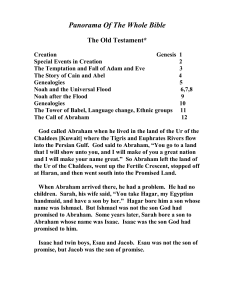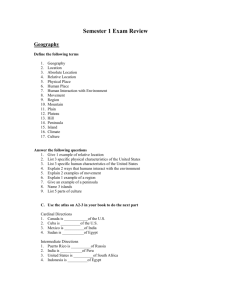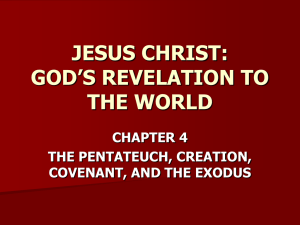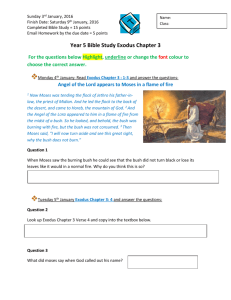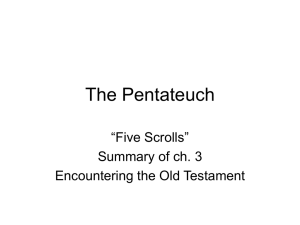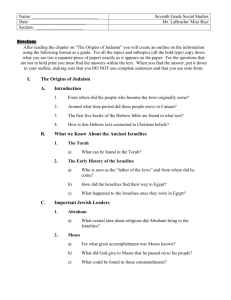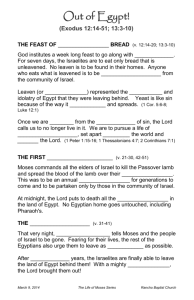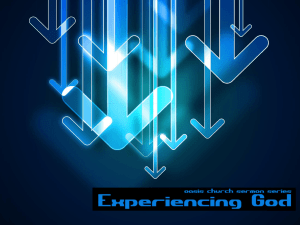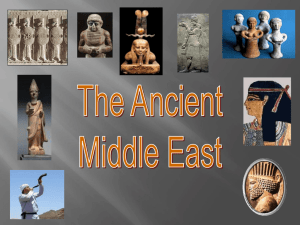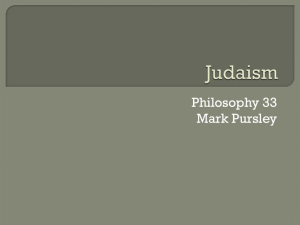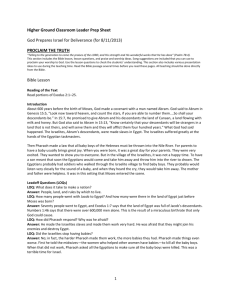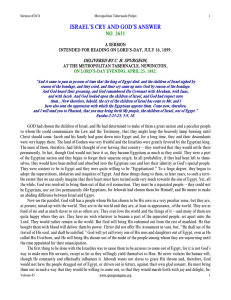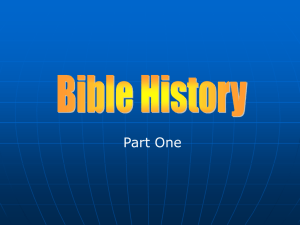Week 4 Answers
advertisement
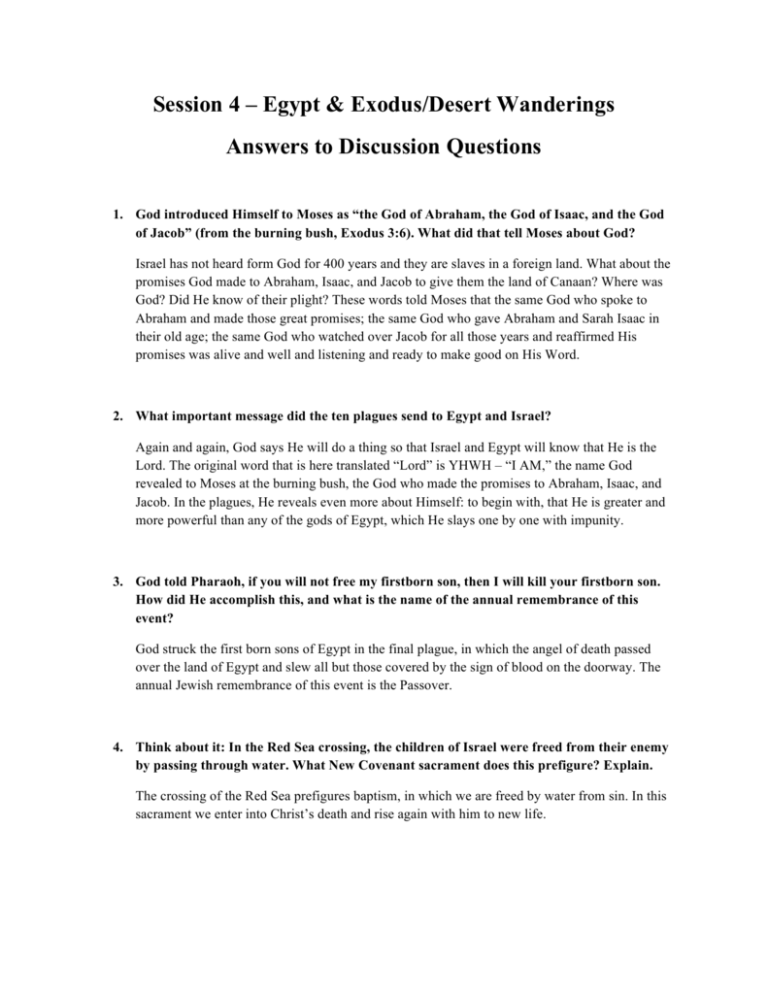
Session 4 – Egypt & Exodus/Desert Wanderings Answers to Discussion Questions 1. God introduced Himself to Moses as “the God of Abraham, the God of Isaac, and the God of Jacob” (from the burning bush, Exodus 3:6). What did that tell Moses about God? Israel has not heard form God for 400 years and they are slaves in a foreign land. What about the promises God made to Abraham, Isaac, and Jacob to give them the land of Canaan? Where was God? Did He know of their plight? These words told Moses that the same God who spoke to Abraham and made those great promises; the same God who gave Abraham and Sarah Isaac in their old age; the same God who watched over Jacob for all those years and reaffirmed His promises was alive and well and listening and ready to make good on His Word. 2. What important message did the ten plagues send to Egypt and Israel? Again and again, God says He will do a thing so that Israel and Egypt will know that He is the Lord. The original word that is here translated “Lord” is YHWH – “I AM,” the name God revealed to Moses at the burning bush, the God who made the promises to Abraham, Isaac, and Jacob. In the plagues, He reveals even more about Himself: to begin with, that He is greater and more powerful than any of the gods of Egypt, which He slays one by one with impunity. 3. God told Pharaoh, if you will not free my firstborn son, then I will kill your firstborn son. How did He accomplish this, and what is the name of the annual remembrance of this event? God struck the first born sons of Egypt in the final plague, in which the angel of death passed over the land of Egypt and slew all but those covered by the sign of blood on the doorway. The annual Jewish remembrance of this event is the Passover. 4. Think about it: In the Red Sea crossing, the children of Israel were freed from their enemy by passing through water. What New Covenant sacrament does this prefigure? Explain. The crossing of the Red Sea prefigures baptism, in which we are freed by water from sin. In this sacrament we enter into Christ’s death and rise again with him to new life. 5. The first terms of the Sinai Covenant are what we know as the Ten Commandments, which John Paul II called “the law of freedom: not the freedom to follow our blind passions, but the freedom to love, to choose what is good in every situation, even when to do so is a burden” (Celebrtion of the Word at Mount Sinai, St. Catherine’s Monastery, 26 February 2000). Think about the Ten Commandments. What kinds of “false gods” do they free us from? Answers will vary. The Ten Commandments free us from the false god of self; from the gods of lust and power; of money and revenge. They free us to set our eyes on God and live as we were created to live, as His children and in His image. To encourage discussion, ask how people have experienced this in their lives. Have they found themselves attracted to any false gods? How do those gods enslave us? 6. What did the Tabernacle signify to Israel? The Tabernacle signified the presence of God dwelling among His people. This is the first time we have seen this since God walked with Adam and Eve in the Garden of Eden. It is a sign of and a step toward restoration of the broken relationship. 7. Which tribe was given the priesthood after Israel’s unfaithfulness with the golden calf? The Levites, who alone rallied to Moses and the Lord when Moses confronted the people with their sin, were set apart to the Lord as priests. 8. Why did God make Israel wander for forty years in the desert, and what was He trying to teach them? When Moses sent twelve spies into the land of Canaan, they brought back a report that it was fertile and full of Giants. Ten spies felt the foes were too mighty to defeat; only two stressed the bounty of the land and said that God would lead them in. Because the people listened to the ten and did not trust God to take them safely into the land and give it to them (in spite of the way He had delivered them from Egypt), He made them wander a year in the desert for every day the spies had been in the land. This would allow a generation to grow up learning to trust entirely on God’s providence. 9. St. Paul tells us that these stories “were written down for our instruction” (1 Corinthians 10:11). What message do they carry for you today? Answers will vary; encourage discussion. You might also ask why it will be important for the Israelites to teach their children. What might happen if they do not? Is this important for us today? Why or why not?
